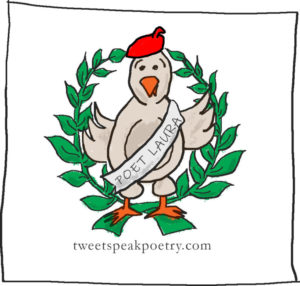When the writing life surrenders to the Pause
I heard it as a whisper as I was growing up and well into my adult years: I should be writing.
When I finally committed to a regular writing schedule, that whisper didn’t go away—instead, its volume increased. Over time, it became a drumbeat around which I organized my day and calendar and efforts. Especially during these preceding few months, as I moved from project to project, deadline to deadline, I felt its energy and persistence as I wrote.
And then I got sick.
Fortunately, I only had the flu. Unfortunately, it was the worst flu I’d ever experienced, and the drumbeat that had once kept me writing now filled me with helplessness. For more than three weeks, days and nights merged into a soupy haze, and I experienced symptoms so intense and fatigue so brutal that it was all I could do to simply exist.
Eventually, the drumbeat went silent.
***
One of my readers—a thoughtful young woman I’ll call Ally—recently struck up an email correspondence with me. Having recently graduated from college, Ally found herself poised on the brink of her next steps, in a place of Pause. We talked about that fertile and generative space, about embracing it without fear, and with a sense of wonder. We considered Rilke’s gentle directive in his Letters to a Young Poet to “try to love the questions themselves.”
When the flu hit me, though, I learned that I’m terrible at taking my own advice. I raged at my struggles to focus, to string two thoughts together, indeed, even to stay awake. I chafed at my inability to produce any work, even as my mind and body made clear to me that they had no intention of engaging in any activity at all.
By contrast, Ally, per her letters, was taking our conversation to heart, slowing her pace to notice what was in her current environment, digesting, processing, pondering what she wanted to extract from this gift of living. She’d surrendered to the Pause, inhabiting it and allowing it to inhabit her, watching and listening intently for its messages and wisdom.
The word surrender tends to have negative connotations in American culture. It conjures up loss in battle, demoralization, subjugation, a collapse into exhaustion and despair. I’m coming to realize, however, that the richest and most rewarding aspects of my life resulted when I stopped resisting and accepted the inevitable—when I simply surrendered.
When I surrendered to and accepted the negative events of my past, I could step back and take in the entire mosaic of my life; I could witness and appreciate its color and light, its heartbreaking beauty.
When I surrendered to my million flaws and imperfections, I could appreciate the people in my life with much less judgment, and I could welcome new ones with greater ease.
When I surrendered to the words that rushed around me instead of pushing them away, when I allowed those words to take up the space they demanded, let them befriend rather than torment me, then I could breathe into my identity as a writer.
And now, during this time of illness, I realized I had to surrender again—I had to let the Pause teach me what was needed.
So, I did my best to let go of my expectations of myself, to rest, and to become more still. Slowly, slowly, I allowed myself simply to be.
***
After losing my healthy and energetic mother to pancreatic cancer, I also seemed to lose my words. When I sat down to write, I found myself staring out of the window, dissolving into tears, or both. Gradually, I was able to resume writing fiction and essays—indeed, it gave me some relief to express my grief that way—but poetry continued to elude me. Some necessary muscle within me seemed to have glaciated.

Leaning on the compassion of all of these women, I began to assemble poems again, but felt as though I was relearning a physical skill, building brick by brick, stone by stone. I missed the organic flow I remembered, the feeling of words bubbling up and spilling over, of ideas emerging and opening to the sun.
As I finally settled into the Pause offered by my illness, the question came to me: where had that feeling gone? I realized this was my opportunity to find an answer.
I once heard writing poetry analogized to lowering a bucket into a well. After drafting a poem for the first time, one must evaluate it, then lower the bucket again and again, going deeper each time, inching toward the core of the truths one is attempting to address.
An image came to my mind: I was standing near that poetic well, but I was separated from it by a wall and unable to approach. I couldn’t even get to the bucket.
I did the only thing I could think of:
I Spoke to the Wall
. . . and I asked What are you?
Girl, I’ll show you. See these rocks? They are the minutes you spent away from her—when you brushed your teeth and spoke on the phone and took a walk. This one here? It shows her forehead which you couldn’t cool, and over there? Her feet which you couldn’t warm.
Girl, these pebbles are every year of her history that you didn’t think to ask about, every event that made her weep but that you never knew of. And here in the mortar? Her memories—-of looking up through the coconut fronds of her family bungalow and of stepping under the marriage mandap instead of returning to school.
Girl, I hold every act you could not perform for her, every twist of pain you missed, every single teardrop in the night, every battle with fear you didn’t witness.
I hold all of your not enoughs—not wise enough, not tender enough, not strong enough. Oh, yes, especially that one.
This is what I do for you. Girl, tell me thank you.
—Dheepa R. Maturi
I bowed down to it all, to my inability to heal my mother and to ease her pain, to my weakness in wanting desperately to keep her with me even as she suffered so much. The wall protecting me began to thin, and I felt awash in my shame and guilt from that terrible year.
But then, other memories from that year were able to shake free and bloom around me. Reading to her from Rabindranath Tagore and Malcolm Gladwell, chatting as we poured dosas and cooked majjiga pulusu, laughing at my kids’ rendition of “Sylvester the Snake” in old family videos, driving her to lakeside sunsets and encountering innumerable flocks of bright cardinals, lying on her lap in the evenings, having her lie on mine. I saw something else, too—the outline of a pathway back to the poetic well, back to the bucket, back to myself.
***
Now, as my body recovers from illness and my mind reawakens, I am hearing the drumbeat again in the distance, gradually growing louder and stronger, urging me toward the next steps of my writing journey—and my poetry journey.
But it sounds different than before. There is a song intertwining with the resonance, brimming with an invitation: Yes, do write. But also, pause. Pause and breathe in this beautiful world and this beautiful life—the pain, the pageantry, the intricate melodies. And surrender—surrender to it all.
Photo by SirisVisual, Creative Commons license via Flickr. Post by Dheepa Maturi.
- Morphing: Lessons from the Year of the Monarch - October 23, 2024
- Year of the Monarch: Butterfly Kisses—A Romantic Comedy - August 7, 2024
- Year of the Monarch: In Sync — a Communal Poem for the Monarch Butterfly - April 11, 2024

L.L. Barkat says
Dheepa, you’ve brought me to tears. And a strange, peaceful joy.
This is so beautiful. I loved it all. (And, oh, especially that poem to the Wall.)
Dheepa R. Maturi says
Thank you so much, L.L.!
Laurie Klein says
Dheepa, this washed over me, moved me so much I had to walk away for a little while. Make something in the kitchen.
In other words, create a little distance, letting your story lap around me.
Because, what a soulful reckoning . . .
I am breathing more deeply now, only half-teary: empathizing with your process; also thinking about my mother—and things not yet expressed, thus, withheld, unsurrendered. Brokenness, under the surface.
“. . . step back and take in the entire mosaic . . . witness and appreciate its color and light, its heartbreaking beauty.”
Thank you for all you’ve expressed. To be invited into your experience, with its candid, clear, rarefied depths, makes submersing in mine feel doable. Like a kindly, beckoning hand: This way . . .
Dheepa R. Maturi says
Oh, Laurie, this was a hard post to write. Thank you for receiving it so kindly, so tenderly. Thank you for sharing your experience of reading it with your always-beautiful, always-evocative words. I am humbled. Grateful. Moved.